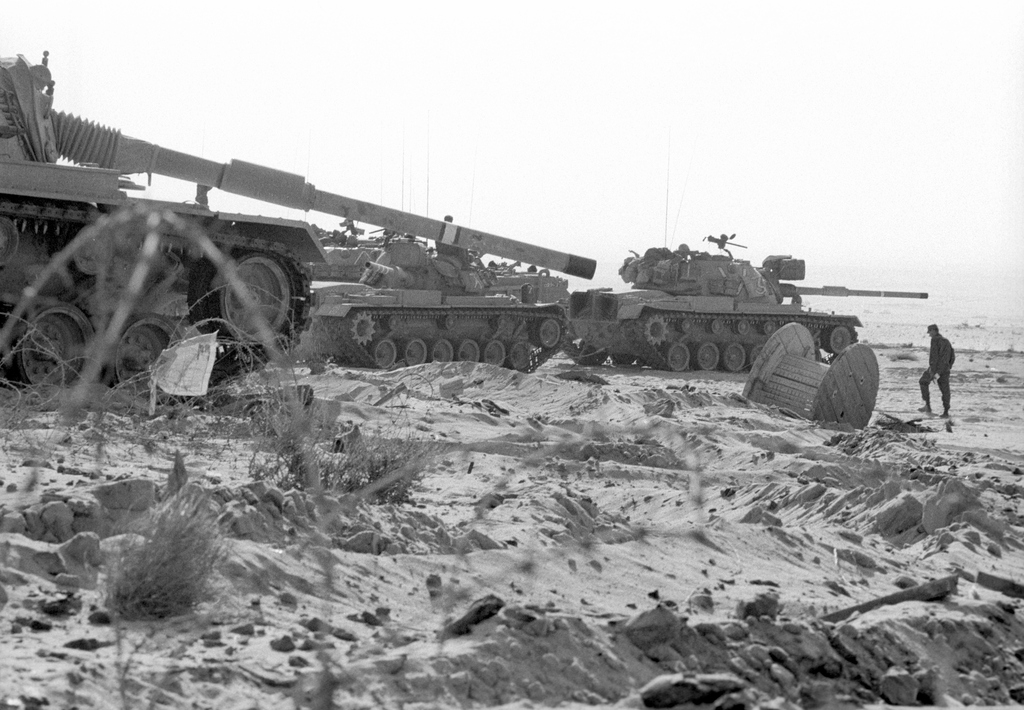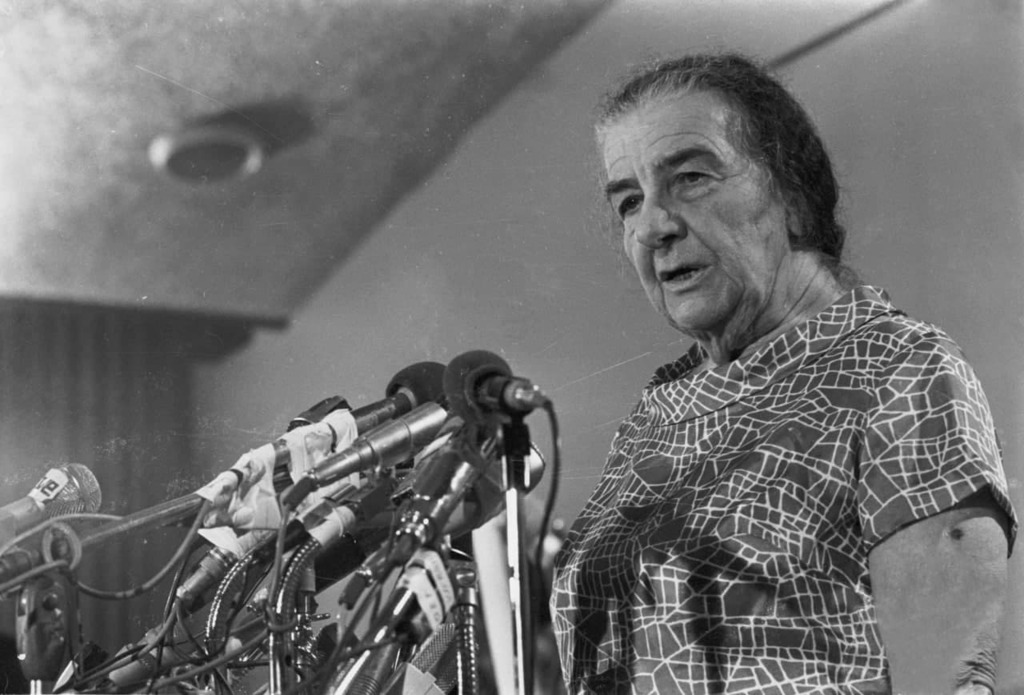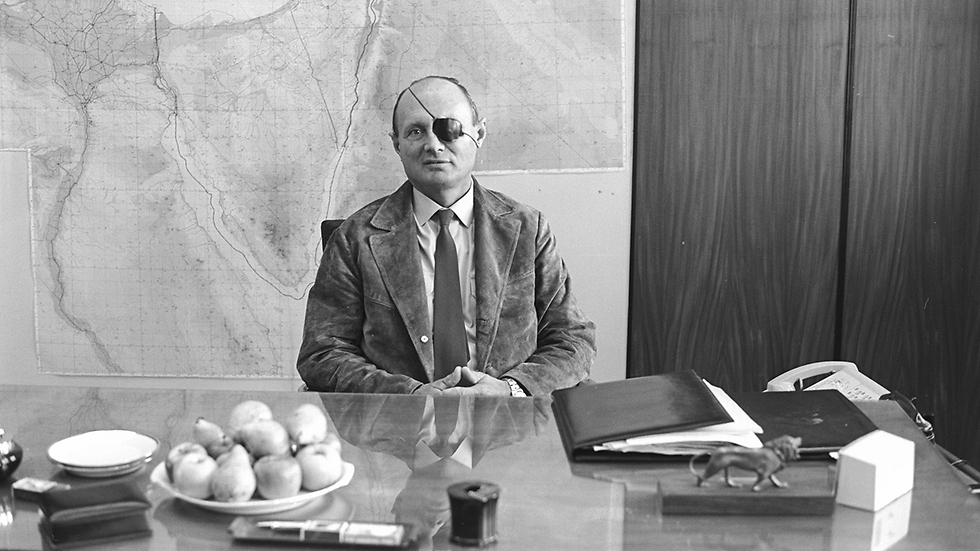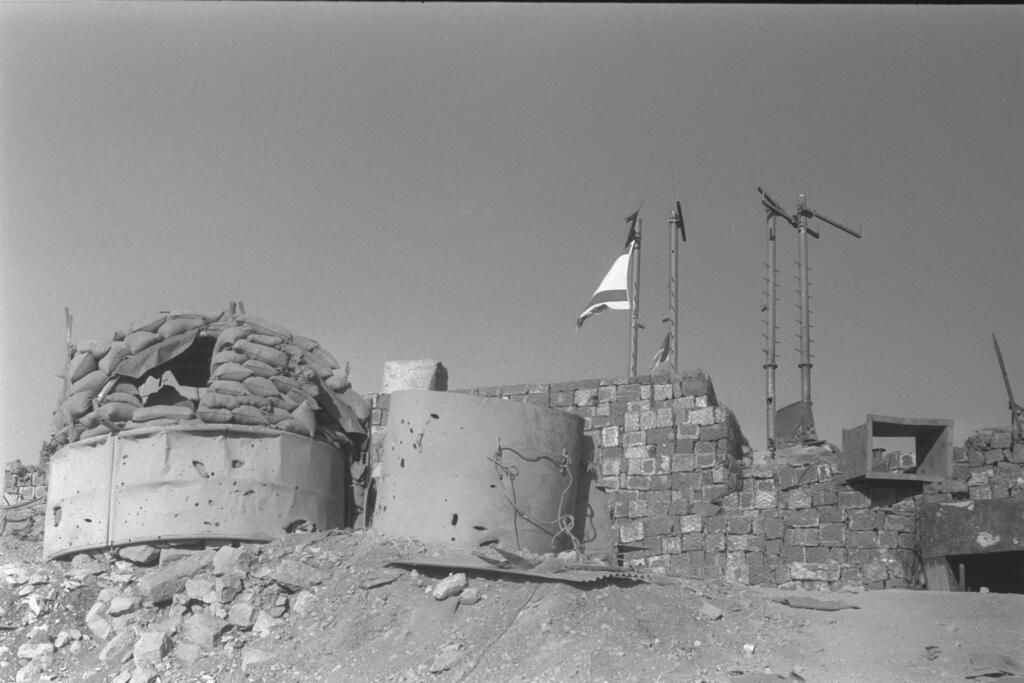Israel's national archive on Wednesday published previously classified protocols from the Yom Kippur War on the 48th anniversary of the outbreak of the armed conflict between the Israeli military and the armies of Egypt and Syria.
The newly published documents include 14 stenograms from government meetings during the fighting which took place between October 6 and October 25, 1973.
The war — one of the bloodiest in Israel's history — ended with 2,656 Israeli dead, 7,251 wounded and 294 captured.
Also made available to the public are 21 stenograms of sensitive political and security consultations and 26 stenograms collected by the Prime Minister's Office from the diary of Eli Mizrahi — the chief secretary of Golda Meir who at the time served as Israel's prime minister.
One protocol from the morning of October 7 — less than a day after Egyptian and Syrian forces began their coordinated attack, shows Meir grappling with the size of the catastrophe.
"They won't hunker down, they will attack. Move from one line to another and keep attacking," she said. "The little help we have from the global community will be gone, they will throw us to the dogs. They don't like Jews, let alone weak Jews."
Another transcript that summarizes the desperate situation the political echelons found themselves in was Meir using the term SOS in talks with future IDF chief and prime minister Ehud Barak, who at the time was a commander of a tank division.
Another document from October 19th shows then-defense minister, Moshe Dayan, at a loss about how wasn't Israel alerted of the upcoming attack and how did the Egyptians manage to penetrate through the defense line along the Suez Canal.
"The results should have not come to this and we needed to stop them," he said. "We did not fully comprehend their fighting capabilities."
In a cabinet meeting from the evening of October 21, Dayan says that the IDF could not bombard the captured base on top of Mount Hermon, where some 40 Israeli troops hid inside the outpost's maze of tunnels and underground passes.
"Fatah militants tell the Syrian some of our boys are up there," he said. "Even if the story is true, we could not allow ourselves to bury our own people under a hail of artillery fire."
Eventually, Syrian commandos managed to clear out the base and take several dozen IDF soldiers hostages.
Commentating on the high number of dead and wounded, Meir said during that same meeting that "the people of Israel are characterized by two things - unmatched bravery and a complete inability to deal with a high number of casualties."
"We are one big family, and every day will lose a close one and I see people's nerves being on edge."
On October 31, about a week after the end of the war, Meir commented on a proposal made by Egypt earlier in the war that would see Israel completely withdrawing from the Suez Peninsula in exchange for a total ceasefire. She said that "this could have been achieved without a war."
The full materials can be found on the Israel State Archives' website





